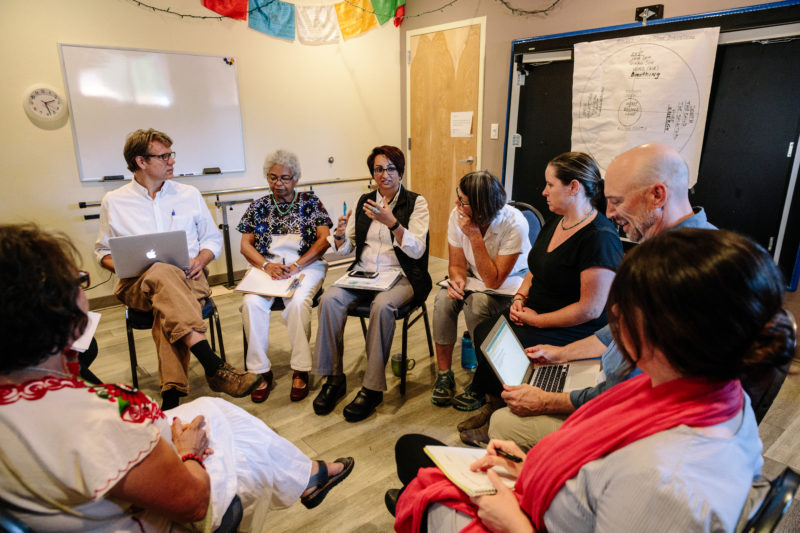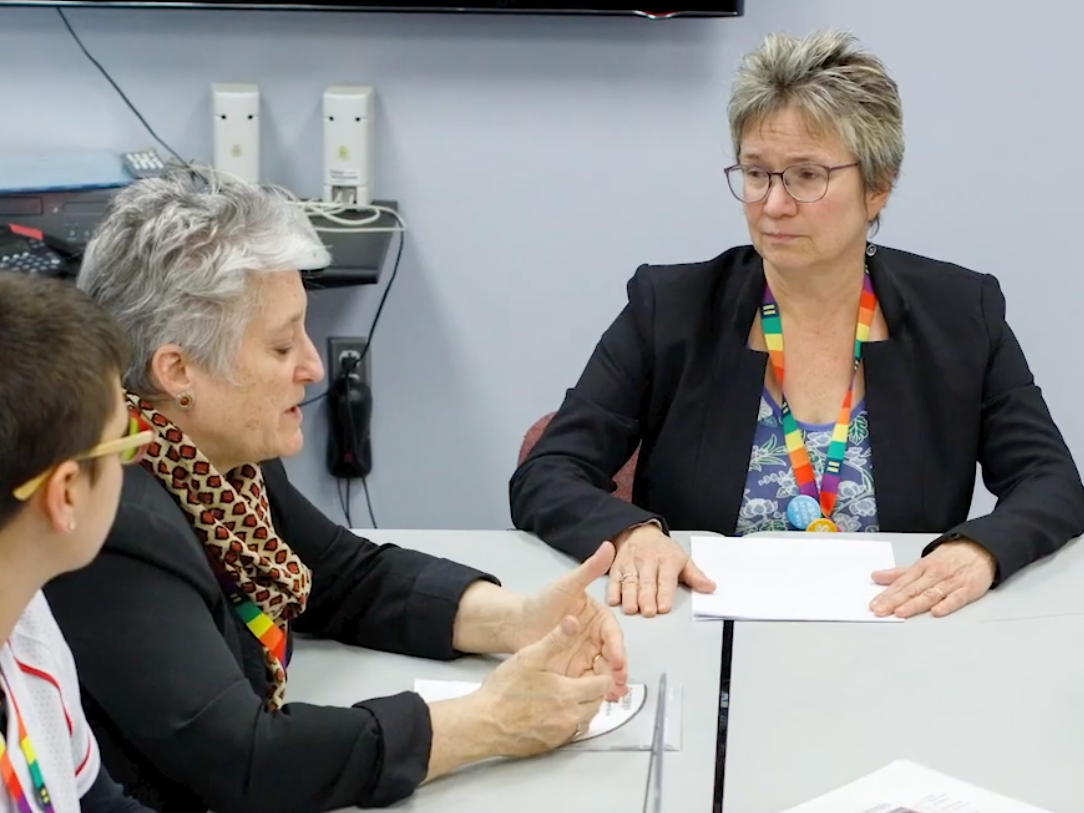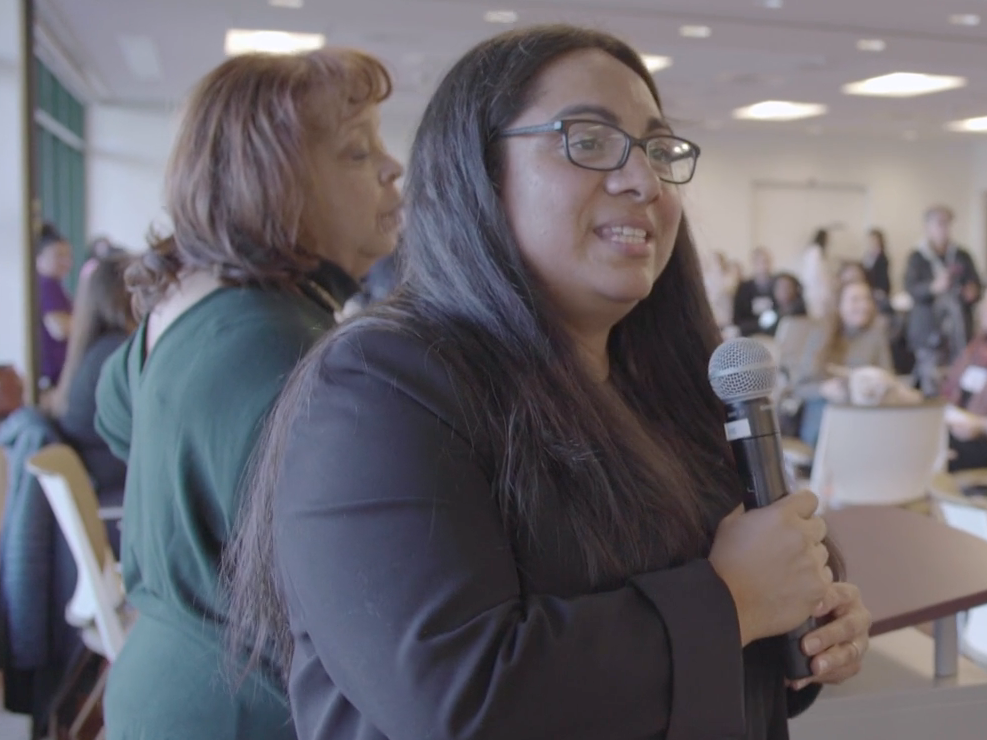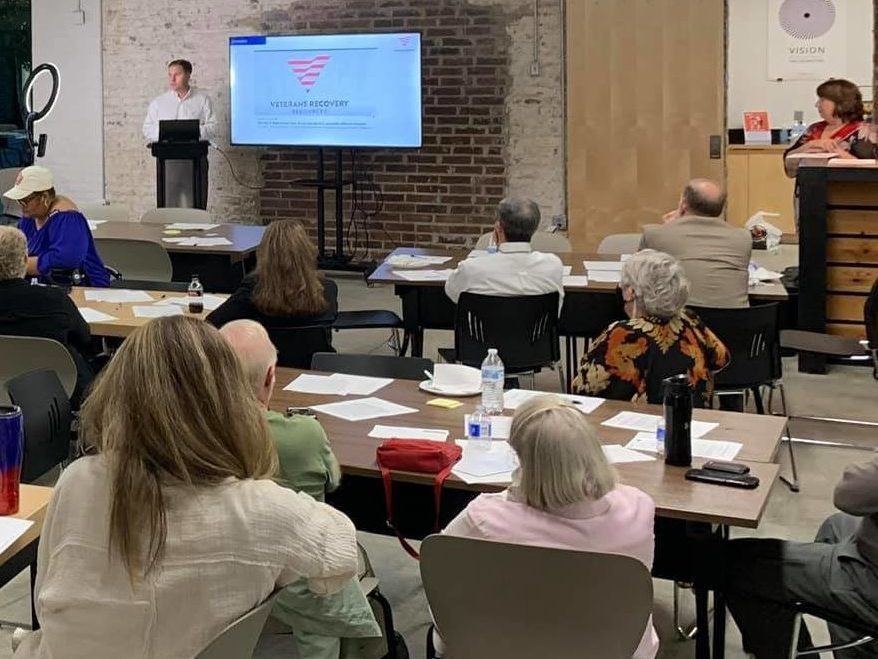Equity Centered Leadership is a validated model developed by an interdisciplinary team at the University of North Carolina at Chapel Hill. Clinical Scholars uses this model so participants are better equipped to lead successful, scalable, and sustainable efforts for systems change.

SUCCESSFUL
Successful in reducing health disparities.

SCALABLE
Scalable towards public health impacts.

SUSTAINABLE
Sustainable for continued impact.
Why Equity Centered Leadership?
Equity Centered Leadership (ECL) is the practice of an integrated skill set where EDI competencies are developed alongside and equal to others across personal, interpersonal, organizational, and community and systems domains. For everyone in the United States to have a fair and just opportunity to be as healthy as possible, we need to co-create solutions aimed at transforming the many systems that influence where we live, learn, work and play.
How does ECL fuel systems change?
Since 2016, Clinical Scholars has supported 162 Equity Centered Leaders across 28 states and territories. Upon completion of the three-year program, each individual is better prepared to:
- Understand their leadership style and how to be increasingly effective in leading and managing others, as well as working collaboratively and interprofessionally.
- Advocate for positive change within their teams, organizations, and communities.
- Promote creative thinking, innovation, and thought diversity.
- Understand how to appraise, synthesize, and use the best evidence to guide practice and inform policy.
- Communicate, engage, and negotiate in a manner that creates win/win outcomes for all.
What are some of examples of ECL in practice?
The Gender Wellness Center

Every day, transgender and gender-nonconforming people face discrimination they reach out for help in health care settings. Barriers to care include negative experiences with health care personnel, lack of insurance, lack of transportation, provider ignorance, and the absence of institutional support for transaffirming health care. In response, the Clinical Scholars team in rural New York is leading change to create a culture of health based on health equity for gender diverse community members.
- Success: Clinical Scholars Fellows led organization to develop a 6-pronged interdisciplinary team with medical, surgical, mental health, legal, research and training programs. The team served a 300-mile catchment area serving hundreds of patients across the lifespan.
- Scalability: In just three years, patients served grew from 340 by a single provider to 900 patients served by an interdisciplinary team.
- Sustainability: By the end of Clinical Scholars funding, the team was awarded over $1M in grants to continue and expand services. The Gender Wellness Center was officially recognized by and integrated into larger health system.
Strengthening Health through Education, Linkages, and Training

Housing Insecurity (HI) is inextricably linked to poor physical and mental health. HI is prevalent in many communities served by Northwell Health in New York City, the 14th largest clinically-integrated health care system in the U.S. which serves more than 8 million people. In response, the Clinical Scholars team in Queens and Nassau counties is collaborating with community based organizations by addressing housing insecurity at patient, community, and workforce levels.
- Success: Clinical Scholars Fellows led health system efforts around social determinants of health (SDOH) training for Northwell employees and residents including facilitating poverty awareness simulations and online training modules. The team created more than 20 community partnerships and integrated SDOH into the electronic medical records (EMR) for the health system.
- Scalability: In just three years, staff training and universal social determinants of health screening had expanded to 23 hospitals and 13 communities in New York City.
- Sustainability: By the end of Clinical Scholars funding, the team established health equity policies and practices in their system. This included universal SDOH screening policy, medical/legal partnership to support families, and faculty and staff anti-racism and SDOH trainings.
Veterans Recovery Resources

An estimated 30-50 percent of Veterans in Southwest Alabama need effective services for substance abuse, post-traumatic stress, depression, and/or suicidal behavior. Yet, almost half of them have not received mental health services since leaving the military. Formed by Vets for Vets, the Clinical Scholars team in Mobile accelerates Veteran well-being by removing barriers to high-quality, compassionate, and affordable care to create a vibrant community of healthy Veterans who support each other over a lifetime, enhancing health, equity, and economic development.
- Success: Clinical Scholars Fellows created a cost-efficient strategy to infuse Veteran peer support and community engagement into evidence-based mental health care for Veterans with substance abuse, post-traumatic stress and related issues.
- Scalability: In just three years, they have expanded by 8 Bed MM Detox, 16 Bed Intensive Residential, and 20 Bed Respite Care. The local economic impact includes 41 jobs created with $3.5M in annual payroll.
- Sustainability: By the end of Clinical Scholars funding, the team was awarded over $4.7M from local, state, and national funders. The operations are now self-sufficient.
Want to learn more about how equity centered leadership development can advance health equity?
Watch the Health Equity: How To Sustain & Scale Successes (3Ss) Panel below and follow @CSPfellows on Twitter.